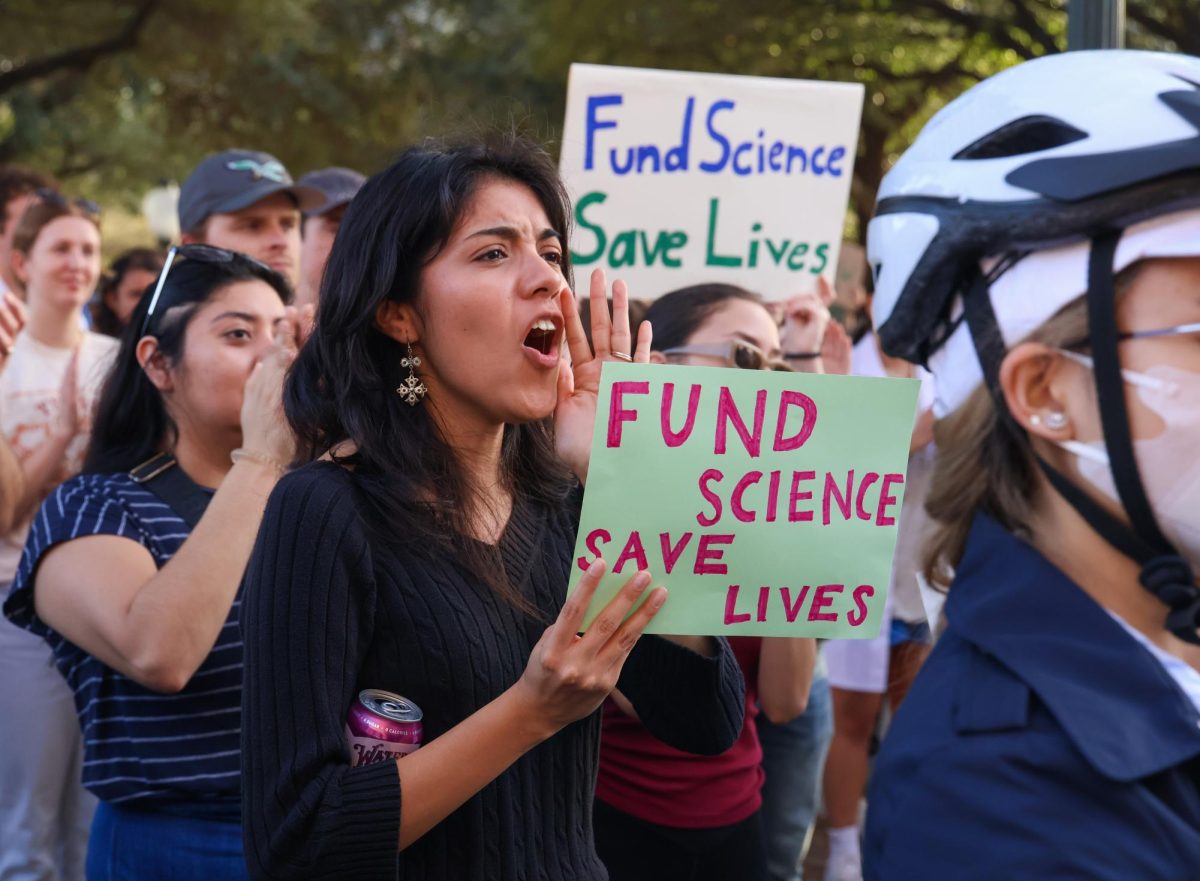Occupy Austin protester and co-founder of the group Copwatch is helping Austinites learn about their rights despite being arrested for exercising civil disobedience.
Eric Ellison and three other Occupy Austin protesters were arrested Oct. 13 for criminal trespassing after refusing to leave City Hall grounds while the area was being cleaned overnight. Ellison said getting arrested for engaging in civil disobedience shows his support for the Occupy Austin movement, and he thinks the police often overstep their boundaries.
Ellison and his friend Eric Wincott co-founded Austin Copwatch with the central goal of reducing police violence, mainly through videotaping police activity and teaching people to explore the alternatives to calling the police. The Austin chapter of Copwatch is part of a nationwide network of people who film the actions of police officers and publish the videos to websites such as YouTube.
He said the activities of Copwatch are directly related to the ongoing Occupy Wall Street movement because of the major police presence at protests nationwide. Ellison said the police can potentially abuse their ability to use force, such as using Tazers or physical violence, against citizens, especially when they are engaging in civil disobedience and protest.
“They are an armed administrative bureaucracy based on a top down chain of command and gives orders that are to be followed without question,” Ellison said.
Ellison said the main tactic of Austin Copwatch is to record the police and put pressure on them to restrict their use of force against people. He said Austin Copwatch distributed cameras, notepads and flashlights during the Occupy Austin protests and held training sessions on how to be witnesses for people who are getting arrested.
“We are deterring police violence with our presence,” Ellison said. “Having cameras around the police deters them from being violent.”
Ellison said the Austin Police Department hasn’t engaged too much with the Occupy Austin protesters because they are following most of the city’s regulations. On Oct. 6, the first day of the Occupy Austin protests, 1,200 attended and no arrests were made.
UT Police Department chief of police Robert Dahlstrom said UTPD has no policy against people filming on-duty officers but emphasized using common sense to avoid interfering with the officer’s job. Dahlstrom said he has had experience with Austin Copwatch and other media groups filming the police. He said reporters have been arrested in the past for interfering with an officer’s investigation because they were warned several times to keep their distance but refused to move.
“There is a difference between taking pictures and interfering, and you can get arrested for that since it is state law,” Dahlstrom said. “Don’t try to get right in [the officer’s] face, stay 20 or 30 feet back to make sure you’re not going to interfere.”
Wincott said the groups tactics have proven to reduce police violence in other cases because of more public awareness.
“A lot of change came about when people saw police abuse and the killing of unarmed innocent people,” Wincott said. “Even police agree with these ideas because when people see brutality, it makes all police look bad.”
The group also sees a need to change the way people interact with police within their neighborhoods. Wincott said police often make small events escalate into larger problems by getting involved in people’s arguments or disputes.
“We are working on organizing communities and teaching them to solve domestic disputes without the police,” Wincott said. “When you send aggressive people into an aggressive situation, bad things are going to happen, so we trying to change this system and educate people to protect themselves.”




















